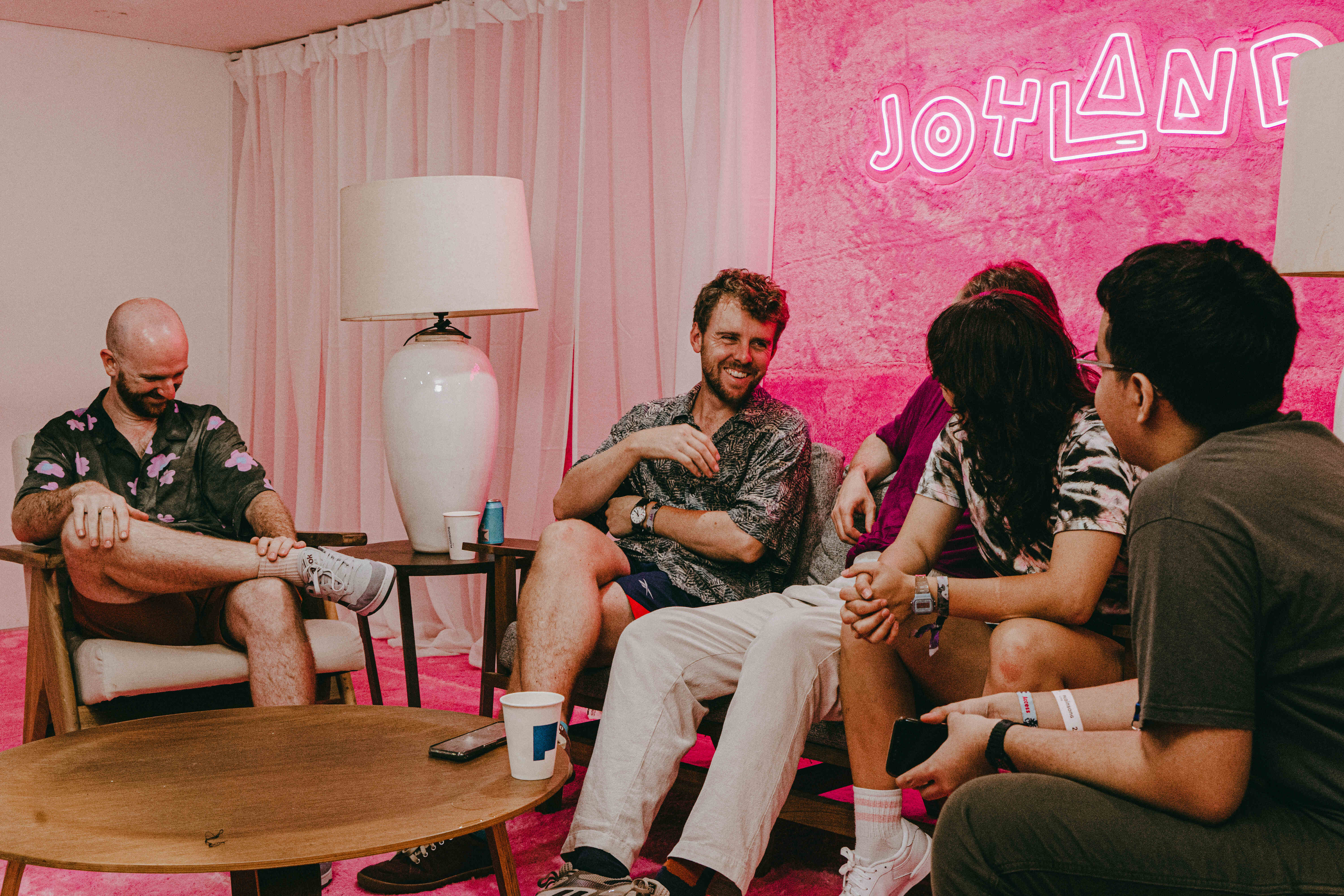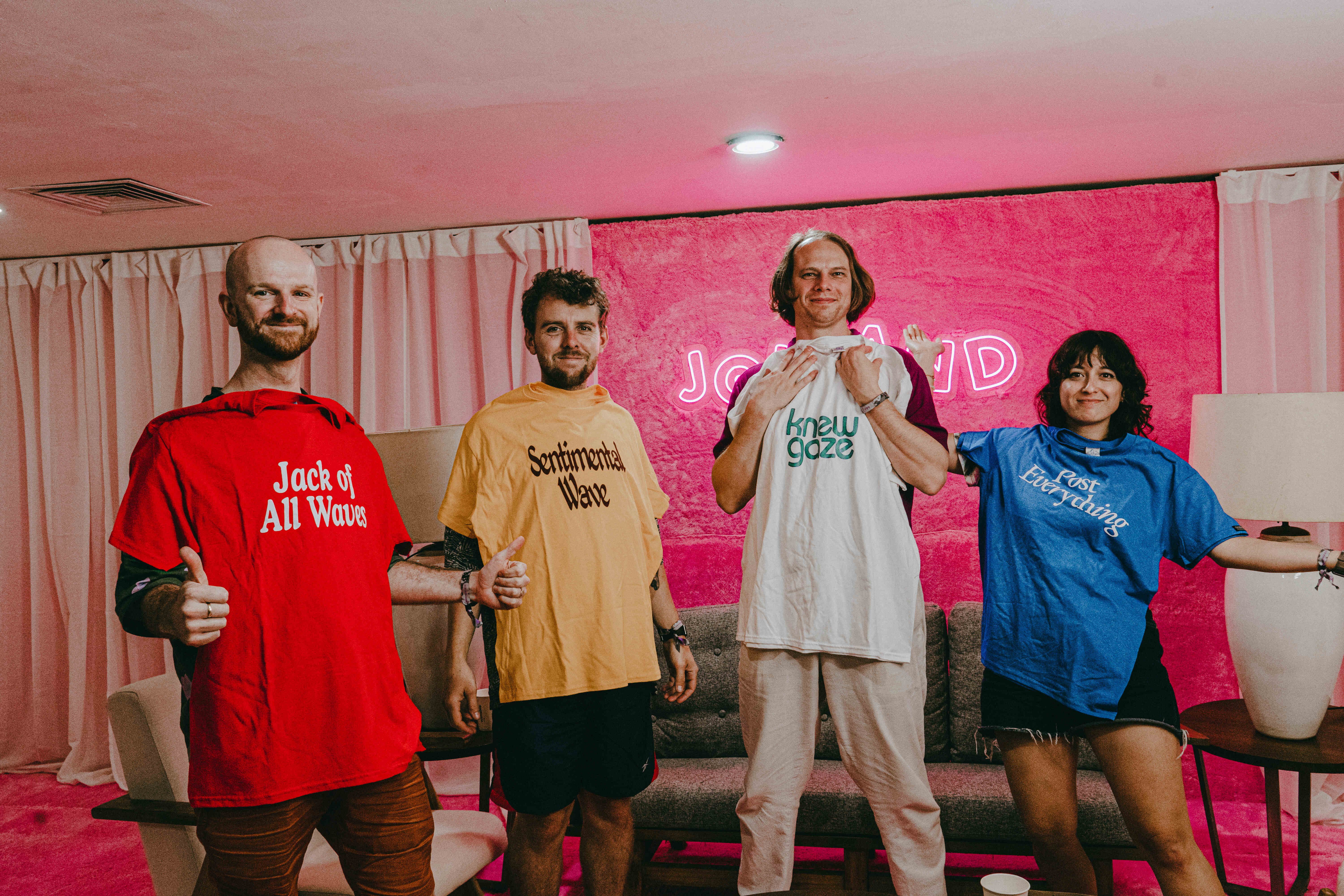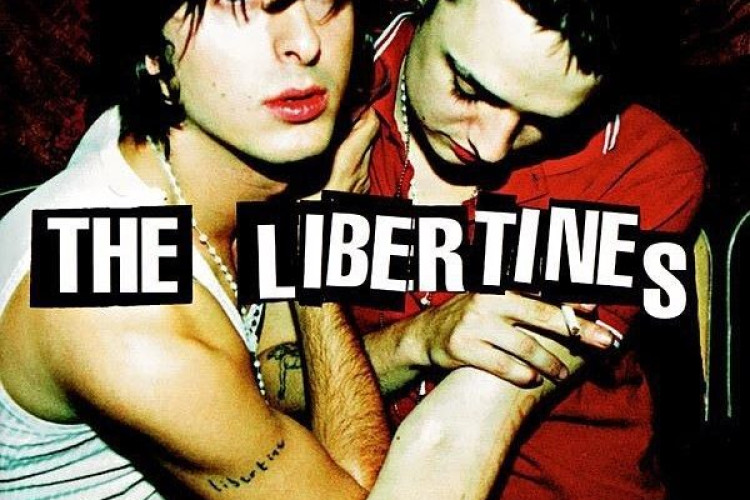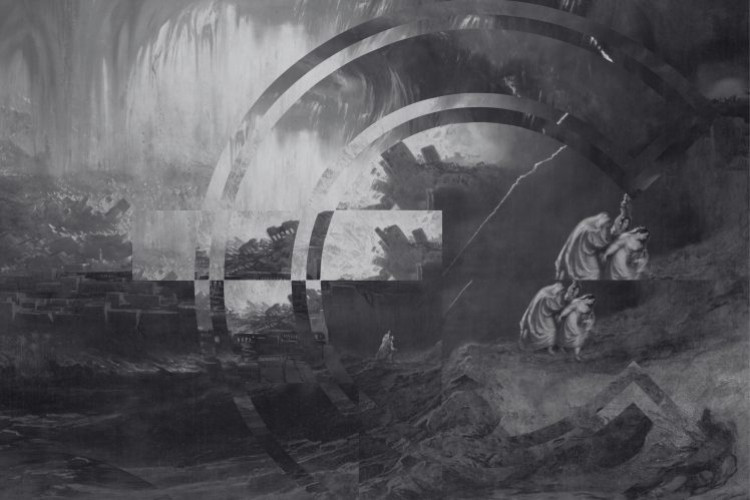
The Beths: “People love hearing about sadness in music.”
We visited Joyland Jakarta’s Artist Village to talk about New Zealand’s music scene, US Tour, and melancholic songwriting with The Beths.
Words by Whiteboard Journal
Text: Muhamad Rasyad Athala
Photo: Nugie Rian
For me, The Beths is a prime example of this golden age of music streaming. I stumbled upon The Beths on an editorial playlist, randomly playing a live version of “Dying to Believe” on their Auckland live album. I was caught off-guard, and I have fallen in love with their music since then. Knowing my taste in music, liking The Beths is quite predictable. High-energy, guitar-heavy indie pop band with a woman lead vocalist, The Beths feels very familiar with the music I’ve been listening to.
But deeper than their music, I resonate a lot with Elizabeth Stokes’ lyrics. Often taking on a theme of love, The Beths dishes fresh takes on a theme that’s not dying at all. Especially on their latest album, “Expert In A Dying Field”, somehow The Beths deliver an invigorating approach to a post-breakup situation, something that’s very common in music, while still keeping their originality. The album was a big hit, and suddenly I saw everyone excited about them playing at Joyland Festival and finally witnessing them live with thousands of people singing their songs. They used to be my little secret, but I am proud to see them grow and accomplish what they achieved, and always bumping the quality.
After their exhilarating debut in Jakarta, we got the chance to sit down with The Beths and talk about their place in the New Zealand indie scene, their relationship with melancholy and misery, and their struggles with expressing the same emotions time after time.
First of all, selamat datang di Jakarta. How does it feel to be here?
Liz: Terima kasih! Kami merasa senang sekali. It’s our first time playing here.
Tristan: Istimewa!
Liz: Istimewa?
Tristan: Special.
Your music is described as part of a notable trend of guitar-based records from the Zealandia region. How do you see The Beths fitting into or diverging from this regional musical landscape?
Liz: Yeah, I feel like New Zealand has a real love for guitar music and alternative music kind of culture–I think? That goes way back. Part of that I wonder, it’s just like, it’s a very isolated place and the people who are making music, in the 50s and 60s, they were kind of like figuring out how to do it from here. Maybe similar to here, you know? Where you just kind of like listen and figure it out and try and build the instruments that you don’t have or whatever.
And then I feel like, the classic thing is in the 80s we get like Flying Nun (Records), which is a big part of alternative music culture in New Zealand. It kind of shadows over it, as a force. The alternative music scene in New Zealand right now is really strong as well. It feels like it always has been.
Jon: Yeah. There are so many steps to it. It’s a big step.
Liz: Yeah, there’s like The Brunettes and Princess Chelsea.
Jon: Lawrence Arabia, The Ruby Suns. Yeah, those bands that we’re listening to. One step after the next and then here we are, doing our little bit of it.
Do you think New Zealand’s music scene has a good environment to be in?
Liz: We love it. It’s such a great music scene. Maybe we’re biased. Haha. But I really feel like it’s a really strong music scene, and people are doing interesting things and making interesting things always. And because it’s not necessarily a big music industry, I guess it’s… people make things because they really want to, because it’s not really gonna make you any money, unless you get lucky.
Jon: We love to contribute to it,, but then we travel so much it feels strange.
Yeah, you were on a US tour.
Jon: Yeah, yeah we travel a lot. We played a hundred shows this year outside of New Zealand and not a single one in New Zealand.
View this post on Instagram
This year?
Jon: It feels strange. Some years we make a better contribution than that, haha.
So I want to talk about your music. How do you see the relationship between indie music and the expression of melancholy and misery?
Liz: Yeah, it’s weird. I feel like they really kind of go hand in hand. And for us personally, I really feel like I really connect with indie rock and then also power pop as well, this kind of thing of really wanting to be making pop songs that feel classic or something. But I really feel drawn to the guitar and to playing music together as a group, interacting and writing music that way, and performing it that way.
When you’re trying to express yourself…it’s so unlikely that you’re the only person to have experienced that emotion.
Jon: Yeah, because it’s not all about you. I mean, it is all about you, because you’re the lead singer.
Liz: Thank you. Haha
Jon: But it’s like a musical form that lets it not just be all about you. So, it’s okay to express a bit of melancholy or something because it’s not so acute that it’s cringe-worthy, maybe. I don’t know. Is there anything to that?
Liz: Yeah, potentially. Yeah, and it’s just so relatable, right? I feel like when you’re trying to express yourself and you express something that you’re like, maybe ashamed of or feel vulnerable about, it’s so unlikely that you’re the only person to have experienced that emotion. It’s much more likely that almost everybody has. So, I feel like it seems like a good avenue to kind of express it.

Is “relatability” a consideration for you guys to start writing songs? Do you feel like it has to be relatable to everyone, or is it just for yourself?
Liz: I feel like sometimes, when I’m writing, I want to be understood. I think. I want to kind of explain something that I’m feeling, and maybe that thing isn’t relatable. Maybe because, and maybe it’s, you know, like it’s a bad thing. But I feel like I’m trying to explain it in a way that at least can be understood, even if it’s not agreed with or something.
Ben, Tristan?
I think it’s a really accessible format for music. It’s the number-one most accessible emotion.
Liz: Do you think we’re relatable? Haha. Do you feel pressure to be relatable?
Ben: Yeah, you know, people love hearing about sadness in music.
Tristan: Yeah, I think it’s a really accessible format for music. It’s the number-one most accessible emotion. Yeah, and I think Liz’s ideas are just laid out really clearly in the songs. It’s hard to be distracted by too many other things; you know, the song is always really direct.

Photo: Nugie Ryan
I want to expand more on the sadness thing. Well, Liz, you’ve mentioned that you write lyrics “most when I’m upset.” How does channeling emotions into songwriting influence the final outcome of your songs? And has it changed now that The Beths are getting bigger?
Liz: Yeah, it kind of has. Like you know, you become a different person, and it still feels like I find it very difficult. I don’t think that everybody should be suffering, and you have to be a suffering artist. Personally, I find it hard to write a song that’s like, everything’s chill; I’m all good. I like those songs. There are some songs that I like that are just good—feel-good songs.
I don’t know; it’s just personally hard to… I don’t know; it doesn’t really make me feel as much in terms of what I’m trying to write, I suppose. I feel like the challenging thing now is that we are now three albums in, and I’m still the same person. I’ve changed a lot. But I feel like you can’t; it’s like trying to express something that you haven’t already expressed, I suppose.
Sometimes you’re feeling something similar to what you felt before, but I feel like you don’t want to; you can’t write the same song again… So it’s like trying to really understand what I’m feeling and understand if there’s a particular shade of that feeling or a particular angle of that, or a particular metaphor or something that is interesting and that you can explore. Otherwise, you’re just frustrated, because I feel like sometimes I am expressing things that I have already kind of explored a lot, and I feel like I should, you know, try and write a song that I haven’t already written.
Wow, okay. I think we’re done with the serious questions!
(Check our Little Known Facts with The Beths on our Instagram page for the fun question!)
View this post on Instagram











